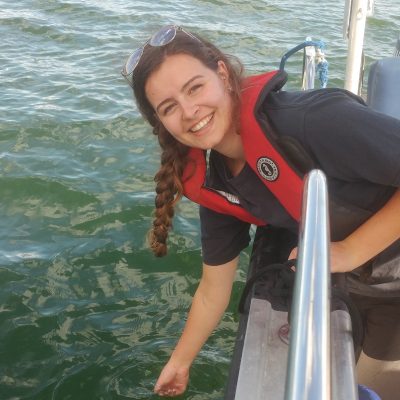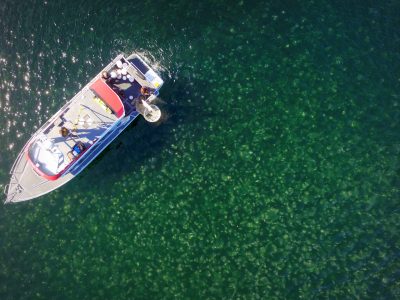
Jessica Schaub
Each year the Government of Canada awards Vanier Scholarships to up to 166 students who are chosen on the basis of their academic work and leadership skills. The scholarship money is intended to cover students’ living expenses, allowing them greater freedom to complete their research.
“It gives me a lot of confidence moving forward knowing that people see value in the type of research I’m doing, and in the leadership I’m doing — and that they see the hard work I’ve been putting into my outreach,” Schaub said.
Schaub began studying jellyfish as an undergraduate student at UBC, where she focused her honours thesis project on jellyfish blooms. During her master’s degree, which was also completed at UBC, Schaub investigated jellyfish diets.
She is currently trying to understand the complex role jellyfish play in ocean ecosystems, and she hopes to evaluate previous claims that they can be classified as a “keystone species” — a species that is foundational to its ecosystem and without it, the ecosystem would be dramatically altered.

Collecting jellyfish
Schaub hails from Cold Lake Alberta and is Alberta Métis. Much of her leadership experience has focused on mentoring Indigenous university students and getting Indigenous youth en-gaged with science.
She served as a mentorship coordinator for UBC’s Indigenous Undergraduate Research Mentorship Program, which pairs undergraduate students with a faculty mentor who can guide their academic career and helps reduce rates of Indigenous student attrition. She also receives a yearly grant from the Natural Sciences and Engineering Research Council of Canada, the Connected North Youth Leadership Fund, and Students on Ice to travel to the Arctic and do science workshops with northern Indigenous communities.
“You never expect to get chosen for awards like this, but they’re too good to not apply,” Schaub said. “It’s opened up some free time for me, giving me a chance to step back and develop some clear goals for my PhD.”
BONUS: Jessica talks about her “jelly journey” with UBC Geering Up Engineering Outreach
Tags: Awards, IOF students